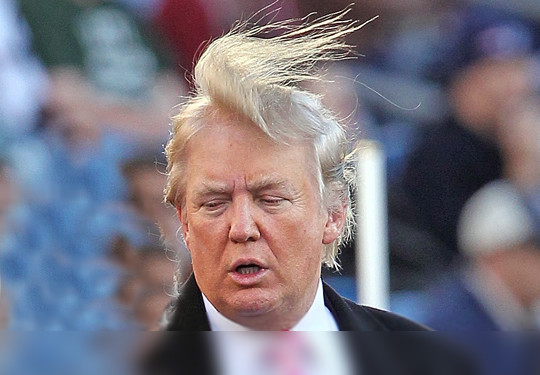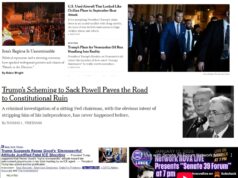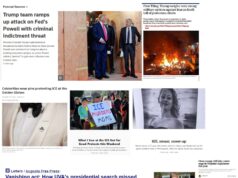 by Andy Schmookler
by Andy Schmookler
“Trump represents something of a quandary for the media, especially TV networks,” says the Los Angeles Times. Matt Taibbi puts the quandary this way: “Essentially, TV news producers are wondering: ‘How do we keep getting the great ratings without helping elect the Fourth Reich?’”
In other words, if ratings are to rule, then covering Trump is the way to go. He is a particular human being – and an especially flamboyant one at that — so he is concrete and easy for our People-magazine culture to focus on.
But if the journalistic quest for understanding is to rule, it is not Trump but the large portion of the Republican base that should command our attention.
We have already seen Trump, and the dark spirit he is serving, fully enough. When even Republicans are using the word “fascist” to describe Trump’s message, the picture has surely become clear enough. But the only reason that Trump’s fascism is important is that the Republican base has made him the runaway frontrunner.
If we’re seeing ugly things in a presidential election that we’ve never seen before, it’s because something unprecedented has grown up among the supporters of one of our two major political parties.
It has not been the American way to value the hater, the arrogant, the bully, the boaster, the reckless. But at this point in history, as Donald Trump has demonstrated, it is possible to become politically prominent – even dominant – by being all of those because such a posture now expresses the passions of so large a segment of the American electorate.
We know that it comes naturally to Trump to act the bully. After all he’s the guy who set up a whole TV program around the recurrent climactic moment of his dashing the hopes of one of his fellow human beings with the line, “You’re fired!” Most people feel a revulsion about having to fire people, but Trump went out of his way to be able to play that role.
But even if a brutal role is appealing to Trump, what he has ridden to power is his ability to read and exploit the dark passions of the Republican base. Trump’s campaign took off from the outset with his attack on Mexican immigrants—whom he characterized as criminal monsters, “rapists.”
If there’s any evidence that Trump himself cares about the immigration issue – he who has hired undocumented workers in his construction projects – I am unaware of it. But he has shown himself adept at riding to power the hatreds and fears of millions of other people.
Trump has made himself into a mirror of the darkness that has been rising for years in the Republican electorate.
The impulse he is harnessing is clearly deeper than any single issue. For Trump’s rise has been accomplished by expressing hostility not only to Mexican immigrants, but also toward blacks (hence the enthusiasm for Trump from white supremacists), and now of course especially toward Muslims.
This pattern shows that the underlying general impulse is hatred of the other – hostility toward those who are different from us. This energy to strike at “Them” in defense of “Us” is one of the most fundamental forms of human brokenness.
In an earlier essay http://www.huffingtonpost.com/andy-schmookler/cry-the-benighted-country_b_8518210.html, I wrote: “In every society, both constructive and destructive forces are always at work. But the balance of power between those forces is not constant.”
And that connects with what is most important – most newsworthy – in the Trump phenomenon.
Racism and xenophobia are not new, of course, in American politics. But what IS new is that the “hate the other” impulse has now become more powerful than ever before. Twenty years ago, or thirty, no one could have ridden starkly dark message like Trump’s, delivered in a manner that transgresses our long-established norms for political leadership, to the front-runner position he now occupies.
So now that so many people can perceive the face of fascism that is arising powerfully out of the Republican base, the important questions that need to be asked in order to expand this newly awakened awareness, are:
1) How did so many people in the Republican base get led into this dark space? (Here, we can look at the pernicious influence of people like Rush Limbaugh, Newt Gingrich, Karl Rove, and elected Republican leaders generally.) and
2) What can be done to diminish these dark passions of the people in the Republican base who are embracing Donald Trump as their champion?
Note: This piece will be running as an op/ed in newspapers in my conservative area of Virginia.




![Sunday News: “Trump Is Briefed on Options for Striking Iran as Protests Continue”; “Trump and Vance Are Fanning the Flames. Again”; “Shooting death of [Renee Good] matters to all of us”; “Fascism or freedom? The choice is yours”](https://bluevirginia.us/wp-content/uploads/2026/01/montage011126-238x178.jpg)





